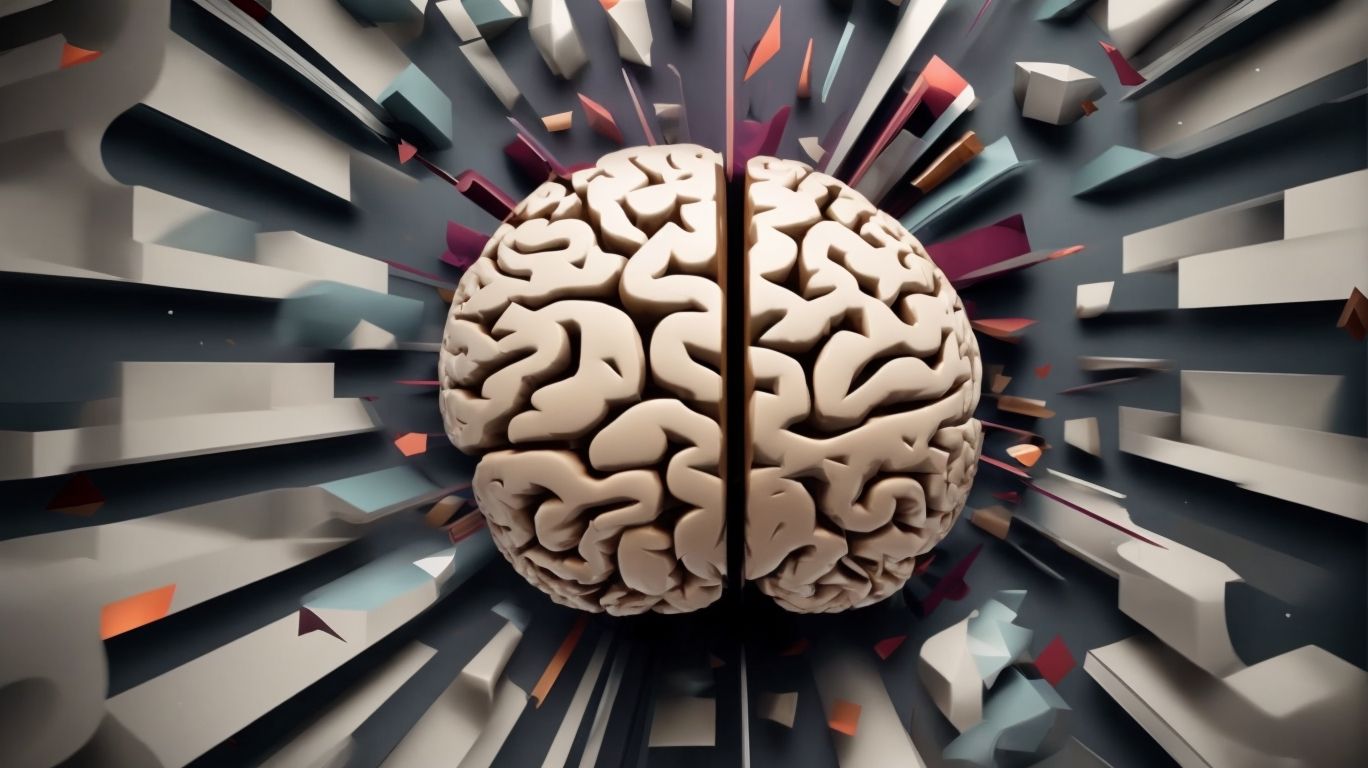Intuition, a mysterious and often misunderstood concept, plays a crucial role in the field of psychology. From its early views to its integration into various psychological theories, intuition has been a subject of much debate and controversy.
In this article, we will explore the definition of intuition, how it works, its historical significance in psychology, and its influence on decision-making processes. We will also discuss whether intuition can be developed and improved, as well as the ongoing debate surrounding its validity as a source of knowledge. Join us as we delve into the intriguing world of intuition in psychology.
Contents
- 1 Key Takeaways:
- 2 What Is Intuition?
- 3 How Does Intuition Work?
- 4 The History of Intuition in Psychology
- 5 The Role of Intuition in Decision Making
- 6 Can Intuition Be Developed and Improved?
- 7 The Controversy Surrounding Intuition in Psychology
- 8 Frequently Asked Questions
- 8.1 What is intuition and how does it relate to psychology?
- 8.2 Can intuition be considered a reliable source of information in psychology?
- 8.3 How does intuition differ from instinct in psychology?
- 8.4 Does everyone have intuition?
- 8.5 Can intuition be developed or improved?
- 8.6 How can understanding the role of intuition benefit individuals in psychology?
Key Takeaways:
What Is Intuition?
Intuition is a phenomenon where individuals rely on their gut feelings and subconscious mind to make decisions, often bypassing conscious reasoning and logic.
Intuition can be seen as a form of inner wisdom that guides choices in the absence of clear evidence or rational explanations. It involves tapping into one’s innate instincts and emotions to reach conclusions.
Trust plays a vital role in this process, as individuals must have confidence in their intuitive guidance. For example, a seasoned entrepreneur may rely on intuition when making business decisions based on their past experiences and learned patterns. These repeated patterns help individuals recognize subtle cues and make quick, accurate judgments, leading to successful outcomes through intuitive decision-making.
How Does Intuition Work?
The workings of intuition involve intricate processes within the brain that synthesize information, recognize patterns, and foster creative insights.
In terms of intuition, the brain’s ability to process vast amounts of data at a subconscious level plays a pivotal role.
Through constant exposure to different experiences, the brain forms neural connections that aid in recognizing familiar patterns and associations effortlessly. These connections, often referred to as ‘intuitive leaps,’ allow individuals to quickly arrive at conclusions without conscious reasoning.
Intuition is not solely based on logic or analysis but also involves emotional and experiential elements. This integration of cognitive and emotional processes is what sets intuition apart from conventional problem-solving methods, making it a valuable tool in decision-making and navigating uncertainty.
The History of Intuition in Psychology
The history of intuition in psychology traces back to early perspectives that have evolved over time, influencing renowned thinkers such as Malcolm Gladwell and Daniel Kahneman.
Throughout the history of psychology, intuition has been viewed differently across various philosophical and psychological schools of thought. Early perspectives often associated intuition with mysticism or the spiritual realm, considering it as a form of divine insight.
As psychology advanced as a scientific discipline, the perception of intuition shifted towards a more analytical and cognitive explanation. This transformation was greatly influenced by key figures such as Herbert Simon and Amos Tversky, who explored the role of heuristics and biases in decision-making processes.
Modern interpretations of intuition by prominent thinkers like Malcolm Gladwell and Daniel Kahneman emphasize the interplay between instinctive reactions and learned expertise, highlighting the dual-system model of decision-making.
Early Views on Intuition
Early views on intuition date back to influential thinkers like Herbert Simon, who explored the role of intuition in decision-making processes and problem-solving.
Intuition, initially viewed as a mysterious and instinctual process, was believed to provide rapid insights and solutions that were not always explainable through logic alone.
Herbert Simon, a Nobel laureate in Economics, integrated the concept of bounded rationality where individuals use intuition as a valuable shortcut to make decisions in complex situations.
Other pioneers in psychology, such as Daniel Kahneman and Amos Tversky, contributed to the understanding of intuitive judgments and heuristics, shedding light on how individuals rely on quick, subconscious mental shortcuts in decision-making processes.
Intuition in the Psychoanalytic Theory
In psychoanalytic theory, intuition gained attention through the works of renowned psychologists such as Dr. Joyce Diane Brothers, who explored its relevance in understanding the subconscious mind.
Intuition, often considered as a silent language of the unconscious, played a pivotal role in helping clinicians uncover deep-seated emotions and underlying motivations.
Dr. Brothers, along with other psychoanalytic theorists, believed that intuitive insights could offer profound revelations about an individual’s inner workings, shedding light on unresolved conflicts and repressed memories.
By looking into the realms of intuition, these theorists delved into the enigmatic terrain of the human psyche, where hidden patterns of thought and behavior lurked beneath the surface.
The ability to tap into intuitive instincts allowed them to navigate through complex psychological landscapes, piecing together narratives that transcended conscious awareness.
Intuition in Behaviorism
Behaviorism introduced a unique perspective on intuition, with figures like Ralph S. Larsen shedding light on how intuitive processes intersect with behavioral responses and learning mechanisms.
According to behaviorists, intuition can be understood as a product of conditioning and reinforcement. When individuals exhibit intuitive behaviors that lead to positive outcomes, they are more likely to repeat those actions in the future.
This aligns with the core principles of behaviorism, where behaviors are shaped by their consequences. Ralph S. Larsen’s work emphasized how intuitive actions become ingrained in an individual’s repertoire through a process of trial and error, with successful intuitions being reinforced through rewards or positive outcomes.
Intuition in Humanistic Psychology
Humanistic psychology embraced intuition as a core element of self-understanding and growth, with scholars like Evelyn Harrison emphasizing its role in attaining personal insights and holistic development.
This approach stressed the importance of connecting with one’s inner feelings and desires to navigate life’s complexities. By valuing intuition, individuals could tap into their innate wisdom and authentic selves, contributing to a more fulfilling existence.
Evelyn Harrison’s teachings underscored the transformative power of intuitive processes in fostering emotional well-being and cultivating resilience amid challenges. Through intuition, individuals could gain profound self-awareness and make decisions aligned with their core values, leading to a more authentic and meaningful life journey.
Intuition in Cognitive Psychology
Cognitive psychology introduced a cognitive perspective on intuition, with figures like Bruce Henderson exploring how intuitive judgments are influenced by cognitive processes, heuristics, and analysis.
Having a deep understanding of how cognitive mechanisms shape intuitive decision-making can provide valuable insights into how individuals make quick judgments and decisions in various situations.
Through the lens of cognitive psychology, we can delve into the intricate processes that occur in the mind when intuition comes into play. Bruce Henderson, a prominent figure in this field, sheds light on the role of heuristics, which are mental shortcuts that the brain uses to make decisions quickly. These cognitive patterns and analytical tools help individuals navigate complex scenarios with a combination of instinctive reactions and cognitive processing.
The Role of Intuition in Decision Making
Intuition plays a pivotal role in the decision-making process, often providing rapid insights and judgments that complement or challenge traditional analytical and rational approaches.
Contrasting intuitive processes with analytical and rational methods reveals the nuanced interplay between gut feelings and logical reasoning.
While analytical approaches rely on data, calculations, and structured models, intuition operates on subconscious patterns and experience-based hunches.
In complex decision-making contexts, heuristics derived from intuitive insights allow individuals to navigate uncertainties and time constraints effectively.
These mental shortcuts help streamline the decision-making process by drawing on past experiences rather than exhaustive analysis, potentially leading to quicker resolutions while leveraging intuitive wisdom.
Intuitive vs. Analytical Decision Making
The comparison between intuitive and analytical decision-making approaches has been a subject of interest, with scholars like Gerd Gigerenzer shedding light on the effectiveness and biases associated with each method.
Intuitive decision-making relies on gut feelings, instincts, and pattern recognition, allowing individuals to tackle complex situations quickly and subconsciously.
On the other hand, analytical decision-making involves a systematic approach, wherein data is gathered, analyzed, and deliberated upon to make informed choices.
Gigerenzer’s research suggests that intuitive decisions are often efficient in uncertain environments where limited information is available, while analytical methods excel in structured, data-rich scenarios.
Despite their strengths, both approaches have their limitations; intuitive decisions can be prone to biases like overconfidence, while analytical methods may suffer from information overload.
Understanding these nuances helps individuals leverage the strengths of both approaches, minimizing biases and enhancing decision-making proficiency.
The Influence of Emotions on Intuition
Emotions play a significant role in shaping intuitive decisions, as highlighted by researchers like Daniel Kahneman, who have underscored the impact of emotional cues on intuitive judgments.
Intuitive decision-making often involves a complex interplay between rational thinking and emotional responses, with emotions serving as a crucial component in influencing our gut feelings.
Understanding how our emotions contribute to intuitive judgments can provide valuable insights into human behavior and decision-making processes. Daniel Kahneman’s groundbreaking research has shed light on the cognitive biases and heuristics that affect intuitive decision-making, demonstrating how emotions can lead to deviations from purely logical reasoning.
Emotions can act as powerful drivers, guiding us towards certain choices based on instinctual responses rather than analytical deliberation.
The Impact of Culture on Intuition
Cultural factors exert a significant influence on intuitive processes and decision-making, a theme explored by scholars like Mihaly Csikszentmihalyi, who have studied how cultural norms shape intuitive behaviors.
For instance, in some cultures, collectivism prevails, emphasizing group harmony and consensus, leading individuals to consider collective needs over individual desires in decision-making.
On the other hand, individualistic cultures prioritize self-expression and personal goals, influencing intuitive judgments to focus more on individual benefits and achievements.
These cultural dimensions play a critical role in shaping not just intuitive behaviors but also cognitive processes and the perceptions individuals hold towards risk, uncertainty, and ambiguity.
Can Intuition Be Developed and Improved?
Intuition is a skill that can be honed and enhanced through targeted exercises and practices designed to sharpen intuitive abilities and expand one’s capacity for insightful decision-making.
One effective approach to strengthening intuition involves mindfulness practices, such as meditation and deep breathing exercises.
By quieting the mind and attuning oneself to the present moment, individuals can tap into their inner wisdom and enhance their intuitive faculties.
Engaging in reflective exercises, like journaling or visualization techniques, can also aid in cultivating intuition.
These practices encourage self-awareness and help individuals connect with their subconscious mind, allowing them to access valuable insights and intuitive guidance.
Exercises to Enhance Intuition
Various exercises and techniques have been devised to strengthen intuitive faculties, drawing inspiration from scholars like Herbert Simon, who advocated for structured approaches to enhancing intuitive decision-making.
One effective exercise is mindfulness meditation, which helps individuals tune into their inner feelings and quiet the noise of their minds. Engaging in regular mindfulness sessions can improve awareness of subtle cues and aid in making more intuitive choices.
Participating in brain training games can enhance cognitive processing speed and pattern recognition, both essential components of fast and accurate intuition. Role-playing scenarios also offer a hands-on approach to developing intuitive decision-making by simulating real-life situations and testing one’s instinctive responses.
Challenges to Developing Intuition
While intuition can be developed, individuals may encounter challenges in refining their intuitive skills, particularly in navigating complex decision-making scenarios that demand a blend of experience and insight.
One of the obstacles in enhancing intuitive capabilities lies in differentiating between true intuition and bias. Individuals often struggle to discern between their genuine intuitive insights and preconceived notions.
This challenge intensifies in high-pressure situations where emotions can cloud one’s judgment and lead to hasty decisions that may not align with their intuitive instincts.
The Controversy Surrounding Intuition in Psychology
Intuition has sparked debates and controversies within the realm of psychology, with scholars engaging in critical discussions on its validity as a source of knowledge and the extent of its influence on scientific research.
While some view intuition as a valuable tool that grants insight beyond empirical data, others criticize it for its subjectivity and potential for bias.
Those in favor of intuition argue that it can lead to breakthroughs in understanding human behavior, tapping into subconscious processes that may not be immediately evident through traditional methods.
On the contrary, skeptics highlight the dangers of relying solely on gut feelings, advocating for the rigorous application of empirical evidence in research practices.
Criticism of Intuition as a Valid Source of Knowledge
Intuition has faced criticism as a reliable source of knowledge, with skeptics questioning the accuracy and validity of intuitive judgments, especially in domains where logical reasoning and heuristics are traditionally favored.
One of the key concerns raised by skeptics is the subjective nature of intuition, which relies on individual perceptions and experiences rather than concrete facts or data.
This subjectivity can lead to biases and errors in judgment, detractors argue, as intuitive decisions may be influenced by personal preferences, emotions, or cognitive shortcuts.
Critics point out that the lack of transparency in the intuitive decision-making process makes it difficult to assess and replicate, raising doubts about its consistency and reliability.
The Debate on the Role of Intuition in Scientific Research
The role of intuition in scientific research has been a subject of debate, with scholars like Herbert Simon highlighting the potential benefits and pitfalls of integrating intuitive insights into rigorous analytical frameworks.
Herbert Simon, a renowned psychologist and Nobel laureate, argued that intuition can provide researchers with quick insights that may not be immediately apparent through traditional analytical methods. These intuitive flashes, according to Simon, can lead to breakthrough discoveries, accelerating the pace of scientific advancement.
On the flip side, some critics caution that relying too heavily on intuition in research can introduce biases and errors, undermining the rigor and reproducibility of findings. Striking a balance between logic and intuition is a delicate dance that many scientists grapple with in their pursuit of knowledge.
Frequently Asked Questions
What is intuition and how does it relate to psychology?
Intuition is the ability to understand or know something without conscious reasoning or logical thought. In psychology, intuition plays a role in decision making, problem solving, and understanding emotions.
Can intuition be considered a reliable source of information in psychology?
While intuition can provide valuable insights and can be a useful tool in psychology, it should not be considered the sole source of information. It is important to also gather and analyze empirical data to support intuitive insights.
How does intuition differ from instinct in psychology?
Instinct refers to innate behaviors that are biologically programmed, while intuition is a cognitive process that involves using previous knowledge and experiences to make quick and accurate decisions.
Does everyone have intuition?
Yes, everyone has the capacity for intuition, but it may vary in strength and use depending on individual factors such as personality, past experiences, and cultural influences.
Can intuition be developed or improved?
Yes, intuition can be developed and improved through practice and self-awareness. Techniques such as mindfulness and journaling can help individuals become more in tune with their intuition.
How can understanding the role of intuition benefit individuals in psychology?
By understanding and utilizing the role of intuition, individuals can gain a deeper understanding of their own thoughts and emotions, make more confident decisions, and enhance their problem-solving abilities. It can also aid in developing empathy and understanding of others.




